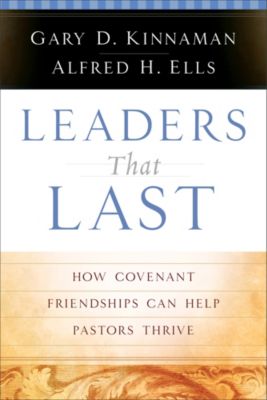
Gratitude may be the greatest secret of pastors with healthy church relationships, allowing them to treat people with love and forbearance.
By Ronnie Martin
I have no idea where it came from.
But one of the clichés I’ve heard over the years is pastors should never befriend people in their congregations. My immediate reaction to that was, “Great, so now you’re saying I can’t have any friends?” My second reaction was, “This sounds like really bad advice—and not very biblical either, which kind of makes it … well … not great.” I mean, I’ve never been the smartest pastor in the room, but a cursory reading of the Gospels doesn’t show Jesus getting tight with an alternate friend group in between healing the sick and casting out demons with His disciples.
More than anything, the word “tension” comes to mind when I think about healthy church relationships. And that’s because it’s hard to create a sense of equity in what’s a very unique relationship.
First off, we’re pastors. We’re the ones people approach to reveal their secrets, share their pain, confess their sins, and be incredibly vulnerable with. That’s a lot for them to relinquish to us and a lot for us to receive.
The other tension is authority. God gives pastors a spiritual authority with our people. But this authority can make them feel like they can never relax, have to keep their guard up, and are being judged whenever they’re around us—whether it’s true or not.
As I was reflecting on this, the word “expectations” kept coming to my mind. It’s a tricky business—this whole expectations thing. But there are two things we can communicate that will, at the least, help us move toward healthy church relationships.
You are a human being
It should go without saying, but unfortunately, it cannot. You need to remind people you pastor you’re a human with a heartbeat just like them, which means you come with a lot of limitations … just like them. Listen, you’re not avoiding your people, failing to do your job, or being an uncaring pastor when you place limitations on the kind of interactions you have with them.
You’re not avoiding your people, failing to do your job, or being an uncaring pastor when you place limitations on the kind of interactions you have with them. — @ronniejmartin Click To TweetIt’s important for them to know this so they get a better sense of how they can care for you. It’s humbling to let your people know you’re a person and not an employee for them to micro-manage. The relationship between congregation and pastor will never flourish if people forget their under-shepherd isn’t the Chief Shepherd.
Not only that, but reminding people you’re human is another opportunity to teach them what God calls pastors to do. Eugene Peterson says it like this:
If I vainly crowd my day with conspicuous activity or let others fill my day with imperious demands, I don’t have time to do my proper work, the work to which I have been called. How can I lead people into the quiet place beside the still waters if I am in perpetual motion? How can I persuade a person to live by faith and not by works if I’m constantly juggling my schedule to make everything fit into place? If there is no time to nurture these essentials, I become a busy pastor, harassed and anxious, a whining, compulsive Martha instead of a contemplative Mary.
Eugene Peterson, The Contemplative Pastor
When people allow their pastor to be a human being who nurtures the essentials, they’ll accept the limitations necessary for these essentials to remain, well, “essential.” In exchange, they’ll receive a heart that’s being nurtured by Christ for the essential care of their own souls. And this leads to the second expectation you can communicate, which is slightly more fun than the first.
You have a heart for them
When people are aware and accepting of their pastors’ limitations, pastors can love them in a deeper, more meaningful way. Why’s that? Well, when they know they’re loved by someone who shares their struggles, understands their sufferings, and knows their sorrows, they can receive those things with a greater sense of gratitude. And gratitude might be the greatest secret toward pastors having healthy church relationships because it allows them to treat people with risk-taking love and humble-hearted forbearance.
When people are aware and accepting of their pastors' limitations, pastors can love them in a deeper, more meaningful way. — @ronniejmartin Click To TweetRisk-taking love
This love comes soaked in gospel resilience, reminding us we can be our true selves because our identities have been secured on the cross. It means we can lose our desires for control and replace it with love. We can sacrifice our tendencies toward suspicion of others and choose to willingly serve them.
Of course, being our true selves in Jesus doesn’t mean we throw discernment out the window. There will always be things we should wisely reveal and things we should wisely conceal. But risk-taking love means we’re willing to deny ourselves anonymity for the sake of knowing our people and being known by them. And we know what we’re getting in exchange, too. They’ll hurt us. We’ll disappoint them. They’ll crush us at times. We won’t meet their expectations at times. But Christ’s love for us compels us to move closer. And with that closeness comes the gift of being loved in return with Christlike love.
Humble-hearted forbearance
For risk-taking love to be more than a light that shines too brightly before burning out, we have to marry that love with humble-hearted forbearance. Practically, this means we understand our people by admitting how much we don’t understand. Their anger, unmet expectations, and disillusionment are usually not about us but about something or someone (and maybe another pastor) from their past that has gone undealt with. So, pastors who step into relationships armed with grace are pastors who see people through the forbearing eyes of Jesus. And His eyes always turn toward us despite our turning away from Him.
Pastors who step into relationships armed with grace are pastors who see people through the forbearing eyes of Jesus. — @ronniejmartin Click To Tweet“The Lord turned and looked straight at Peter. Then Peter remembered the word the Lord had spoken to him: ‘Before the rooster crows today, you will disown me three times.’ And he went outside and wept bitterly” (Luke 22:61-62, CSB).
Jesus could have said, “I am so done with you, Peter.” But Jesus turns and looks at Peter. Don’t miss the turn. This was humble-hearted forbearance. Jesus knew Peter. And He knew in a few days He would be cooking breakfast on the shore for him, and Peter would be reassured his love for Jesus was still true. The forgiveness with which Jesus turned toward Peter is the same forgiveness we have to turn toward others with. And this is how we can have relationships with our people that don’t end in hurt feelings and bad blood. But when they do, and the story of Judas reminds us that sometimes they do, we have more grace.
So let your people know you’re human. Let them know you have a human heart full of love and forbearance to give them, because in Christ, it is what you have to give.

Ronnie Martin
Ronnie is the planter and founding pastor of Substance Church in Ashland, Ohio.









